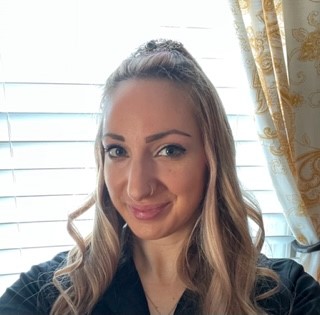Technology/Digital Health
(PS12-70) Feasibility and Acceptability of Ecological Momentary Assessment to Track Experiences Related to Comorbid Posttraumatic Stress Disorder and Substance Use Disorder

Lauren Rodriguez, Ph.D.
Postdoctoral Fellow
Corporal Michael J. Crescenz VA Medical Center
Philadelphia, Pennsylvania, United States- JS
J. Cobb C. Scott, Ph.D.
Assistant Professor
University of Pennsylvania and CMC VA Medical Center
Philadelphia, Pennsylvania, United States
Author(s)
Co-Author(s)
Background: Comorbid Posttraumatic Stress Disorder and Substance Use Disorder (PTSD-SUD) is common among veterans and associated with a host of negative outcomes, including higher treatment dropout. Just-in-time-adaptive interventions (JITAIs) may be useful for decreasing problematic substance use in this population because they can be tailored to the individual veteran’s needs and delivered in moments of highest risk. However, more work is needed to inform the development of a JITAI for PTSD-SUD. Ecological momentary assessment (EMA) is a useful methodological tool that can gather rich information about a veteran’s momentary experiences. The National Center for PTSD recently developed mPRO, an app that collects EMA data following VA security standards. Using mPRO, EMA data can be used to better understand momentary real-world experiences related to PTSD-SUD and inform intervention development. Importantly, the engagement of veterans as key research partners early in development is crucial to ensure the JITAI is patient-centered. This pilot study examined feasibility and acceptability of the mPRO app in the veteran population.
Methods: 17 veterans with comorbid PTSD-SUD (Mage = 52.24, SD = 12.78; 52.9% Black/African American; 76.5% male) completed a 30-day EMA protocol using the mPRO app. They were asked to respond to notifications to complete surveys 5 times a day. Participants had a 20-minute window after receiving a notification to complete surveys before they became unavailable. Participants also had the option to self-initiate a survey in the app at any time. At the end of the study, a 30-minute mixed methods feedback interview was administered. In the first part, participants rated on a scale of 0 (Not acceptable) to 4 (Totally acceptable) several components of the EMA surveys, including questionnaire density, assessment frequency, and survey reactivity. The second part of the interview included open-ended questions to gather qualitative data about participant experiences using the app more broadly. Thematic analysis was used to identify key themes.
Results: Compliance and retention were high. 93% of participants completed 2 surveys a day and 94% attended the follow up visit to provide feedback on their experiences in the study. Participants rated all domains as “mostly acceptable” to “totally acceptable.” Assessment frequency received the lowest rating. Self-awareness and ease of use were major themes that emerged in qualitative responses. Veterans found the app helpful for increasing awareness of their experiences, especially noticing the connections between emotional responses to trauma reminders and their substance use. They also expressed greater preference for recording their experiences using the app over traditional methods (e.g., paper/pen). The most common critique was that the survey response window was too short. While participants were willing to complete 5 surveys a day, most indicated they missed a notification due to daily activities and felt a longer window (60 minutes) would increase response rates.
Conclusion: Feasibility and acceptability of the mPRO app was high in this sample of veterans. Results support future work that will use EMA to inform development of a JITAI for PTSD-SUD.

.png)
